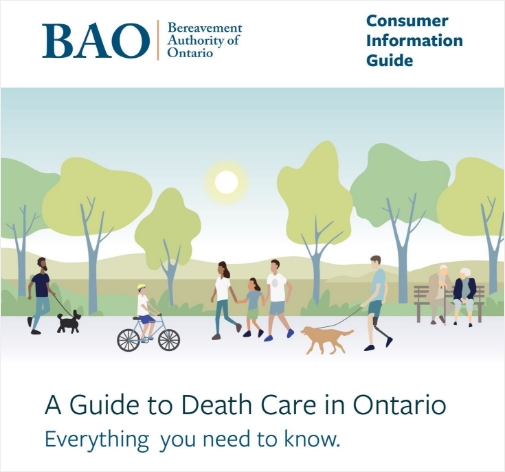Dealing with Grief
These days, fewer Canadians grow up surrounded by extended family and friends; their contact with death and the long-standing tradition of attending funeral services of loved ones has been dramatically reduced. Therefore, when death does strike someone close, they have little, if any preparation toward accepting it.
Overall, grieving is less ritualized today than it used to be, both during the funeral service and in everyday life. However, grieving is still a very important part of dealing with any type of loss, but especially the loss of a loved one.
Emotions caused by the death of a loved one are very powerful. If these emotions are not faced, experienced and dealt with, they may become a destructive force in a person’s life.
On the other hand, grief should not be indulged to the exclusion of all other emotions. Avoiding sadness is not healthy; however one should also incorporate some celebration of the joy of the person’s life through the funeral service or in other types of commemoration.
Often, those who are busiest handling all the details at the time of death are the ones who do not take time to grieve and say goodbye. Later this grief may manifest itself as illness or depression.
Grief is a difficult topic for many people to discuss because it touches each and every one. By facing the death of a loved one, we find we must face our own sense of mortality.
There appear to be three generally recognizable stages of grief a person encounters after a loss. The first is shock and denial. The second is anger and depression. The final stage is understanding and acceptance.
The numbness many people experience following the loss of a loved one is created by the shock and denial one feels when first facing the news of a death. A sense of unreality may prevent the tears and other outward forms of expression we expect with grief.
Tears and anger often begin as a person reaches the second stage of grief. The loss now seems real; it is painful. Grief begins to affect you physically as well as emotionally. You may experience a loss of appetite, an inability to sleep, upset stomach and other physical reactions. These are normal reactions that need to be addressed; however, turning to alcohol or drugs only makes the pain more difficult.
The third and final stage of grief is understanding and acceptance. While no one can ever fully understand the loss of a loved one, reconciling yourselves to that loss is a necessary part of recovery.
By living one day at a time and taking positive steps towards recovery each day to reach that goal, you may find you are beginning to cope again. Your active participation in this process will speed the time of healing.


